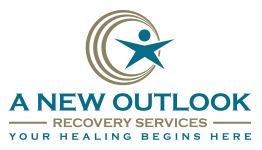05|2025

Breaking stigmas, unveiling truths, and empowering women to rise through recovery.
The Gendered Face of Addiction
Addiction may be universal in reach, but its impact is anything but uniform. For women, substance use disorders often carry a different weight—a tangled intersection of biology, trauma, societal pressure, and deep-rooted stigma. Recovery, too, plays out differently, with unique emotional, physical, and logistical hurdles. The narrative surrounding addiction has long been plagued by misinformation, especially when it comes to women. Too often, the public discourse reduces this complex health condition to a matter of “bad choices”—a claim that is as damaging as it is inaccurate. For women, these misunderstandings compound shame and silence, making it harder to seek the support they deserve.
In this comprehensive Q&A-style exploration, we dismantle myths, uncover lesser-known facts, and offer critical insights for women navigating the challenging—yet profoundly transformative—journey of recovery.
Do Addiction and Recovery Look Different for Women?
Yes, significantly so.
Women tend to experience a more accelerated trajectory into addiction, a phenomenon often referred to as telescoping. They may develop dependence faster, face more intense withdrawal symptoms, and encounter harsher consequences sooner than their male counterparts. Recovery, too, diverges. Women often enter treatment with complex layers of trauma, mental health concerns, and caregiving responsibilities. Their recovery isn’t just about sobriety—it’s about reclaiming autonomy, healing wounds, and challenging the societal scripts that have shaped their self-worth.
Are Women Diagnosed as Frequently as Men?
Historically, no—but that’s changing.
Substance use disorders (SUDs) were once viewed predominantly as male problems. Men have traditionally reported higher rates of use, but recent data show that women—particularly young and middle-aged—are rapidly closing the gap. Alcohol, prescription drugs, and opioids are driving this surge. Despite progress, biases in diagnosis still linger. Women may downplay use, or providers may overlook addiction due to gendered assumptions. Thankfully, modern diagnostics and growing awareness are narrowing these disparities.
Are Women at Greater Risk of Misdiagnosis?
Absolutely.
Many women arrive at medical appointments reporting symptoms like anxiety, insomnia, or mood instability—issues that could stem from or be exacerbated by substance use. Yet historically, few were asked about their drinking or drug habits. This disconnect led to frequent misdiagnoses of depression, bipolar disorder, or hormonal imbalances, while the underlying substance misuse went undetected. Today, more clinicians are trained to screen holistically, but advocating for yourself remains vital. Women should feel empowered to speak candidly about all aspects of their health, including their substance use.
Why Do Women Become Addicted More Quickly—and Does It Matter?
Biology doesn’t lie. Women’s bodies metabolize substances differently, which makes them more vulnerable to the effects of alcohol and drugs.
– Lower levels of alcohol dehydrogenase (an enzyme that breaks down alcohol) lead to higher blood alcohol concentrations.
– Higher fat-to-water ratio in women’s bodies allows substances like alcohol to remain in the bloodstream longer.
– Hormonal fluctuations throughout the menstrual cycle can affect drug cravings and sensitivity.
Does it matter? Scientifically, yes. But morally? No.
Addiction is a disease, not a deficiency. The speed at which someone becomes dependent is irrelevant to their worthiness for care, compassion, and recovery.
What Barriers Do Women Face When Seeking Help?
For many women, the journey toward treatment is steeped in guilt, stigma, and logistical barriers. Society often casts women as caregivers first—mothers, partners, daughters. This expectation makes admitting vulnerability or seeking help feel like a betrayal of one’s role. Common barriers include:
– Fear of losing child custody
– Lack of child care options
– Economic insecurity or wage gaps
– Fear of judgment from family or community
– A sense of unworthiness or internalized shame
– Trauma histories that complicate trust and treatment
These aren’t just emotional hurdles—they’re systemic challenges that must be acknowledged and addressed in recovery planning.
What Should Women Focus On in Early Recovery?
Early recovery is often marked by rawness—an emotional intensity that feels both liberating and overwhelming. While relapse prevention and building a sober network are top priorities, many women also benefit from exploring identity issues, shame narratives, and self-esteem in those first crucial months.
Key focus areas include:
– Healing body image and food-related behaviors
– Examining codependency or people-pleasing tendencies
– Understanding stress responses and emotional regulation
– Rebuilding boundaries in relationships
– Replacing self-medication with self-compassion
Early recovery is a season of rediscovery. For women, this often involves peeling away years of internalized pressure and forging a more authentic self-concept.
What Treatment Approaches Work Best for Women?
Empathy-first, connection-driven care works best.
The old-school “tear-you-down-to-build-you-up” model may work for some, but it often retraumatizes women, especially those entering treatment with histories of abuse, neglect, or emotional invalidation. Women respond better to:
– Trauma-informed therapy
– Strength-based counseling
– Attachment-based and relational models
– Group therapy with strong emotional safety
– Integrated care for co-occurring disorders
The most productive programs focus not just on abstinence, but on whole-person healing—mind, body, and soul.
Are There High-Risk Relapse Triggers Specific to Women?
While triggers vary for every individual, certain high-risk scenarios are especially potent for women in recovery. Common triggers include:
– Romantic turbulence (breakups or toxic partnerships)
– Hormonal imbalances or menstrual cycle shifts
– Caretaking burnout
– Loneliness and emotional isolation
– Boredom or feeling unfulfilled
– Unprocessed trauma or grief
Recognizing these vulnerable moments is essential. So is building a toolkit of healthy coping strategies, including mindfulness, community engagement, creative outlets, and access to professional support.
Empowered Recovery is Possible.
Recovery isn’t a straight line. For women, it often winds through detours of doubt, shame, and cultural expectation. But make no mistake—healing is not only possible, it’s powerful. Whether you’re considering treatment, just beginning your journey, or years into sobriety, know this:
– You are not alone.
– You are not broken.
– You are not too late.
There are resources built with your story in mind—programs that see your strength, your softness, your scars. Whether you find healing through a 12-Step fellowship, trauma therapy, or a women’s recovery group, the most important step is the next one. Reach out. Reconnect. Reclaim your life.
A New Outlook Recovery Services provides therapy for individuals dealing with mental health challenges, relationship and marriage issues, and substance use disorders. Our services include Mental Health and Substance Use Disorder PHP/IOP programs and NeuroStar TMS therapy. Proudly serving communities across Colorado. Call us today for more information at (303) 798-2196… Your Healing Begins Here.
Categories:: Addiction, Addiction Recovery, Family Recovery, Mental Health, Personal Growth, Relationships, Resources
